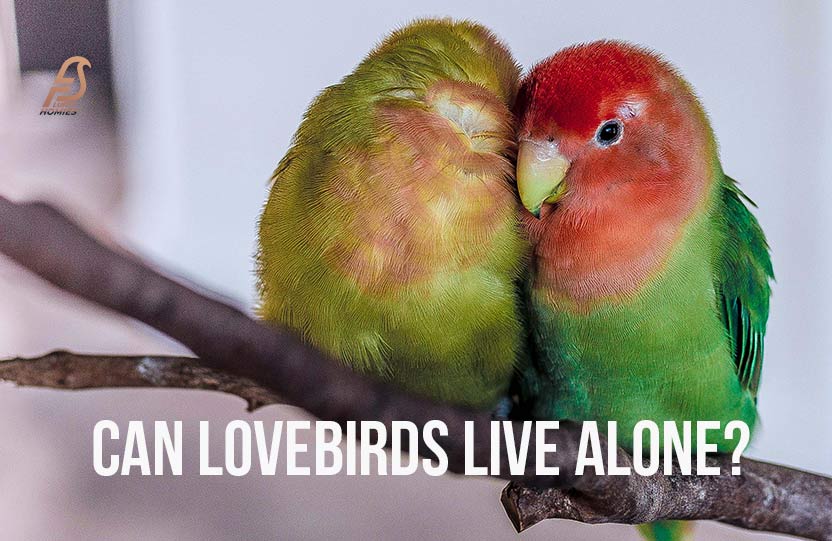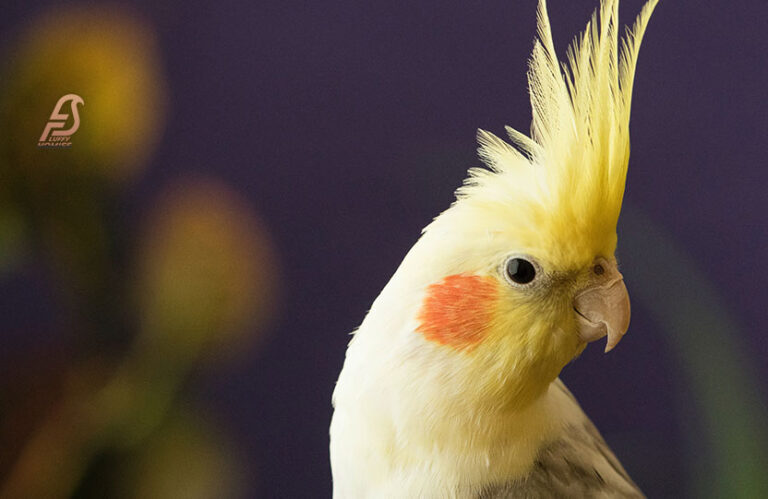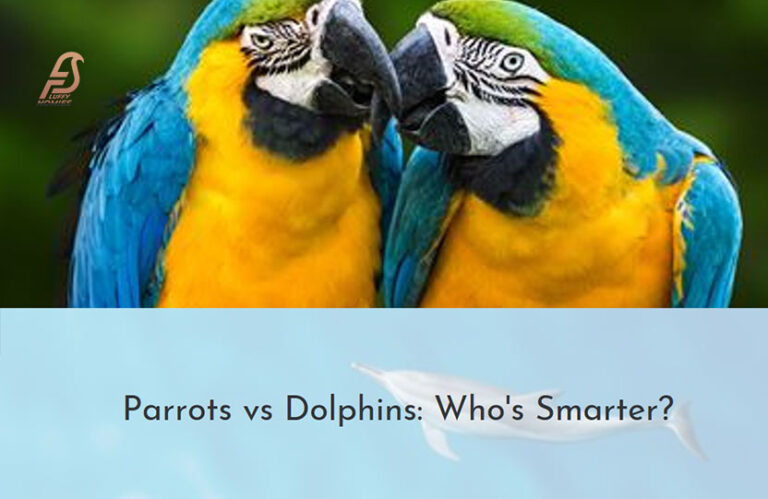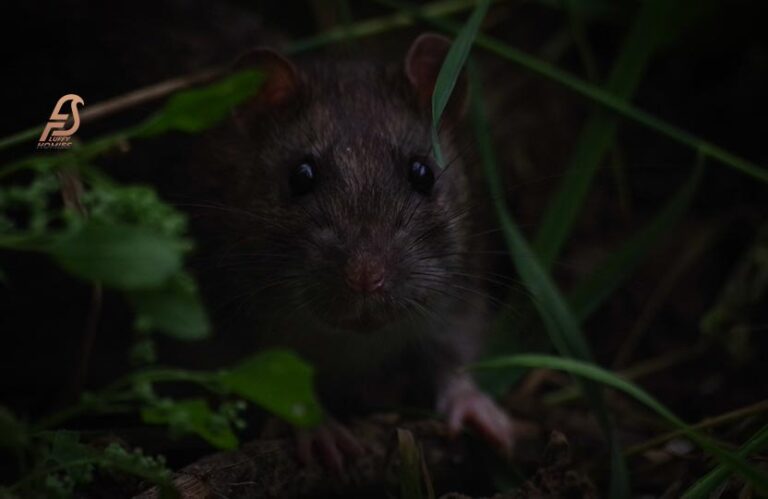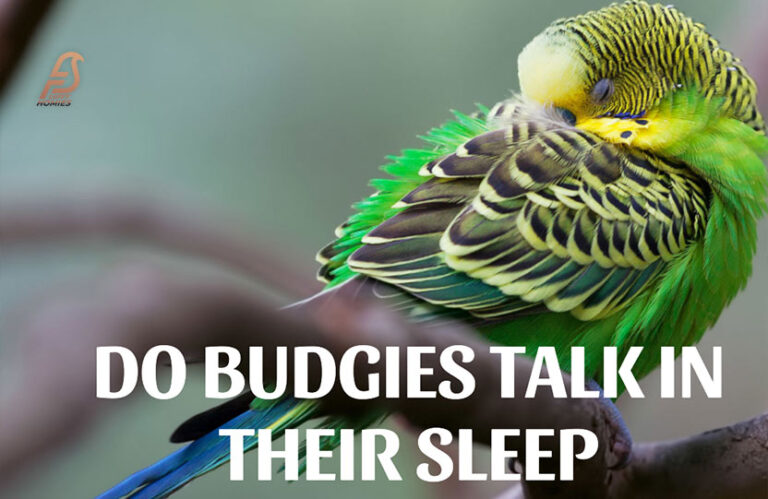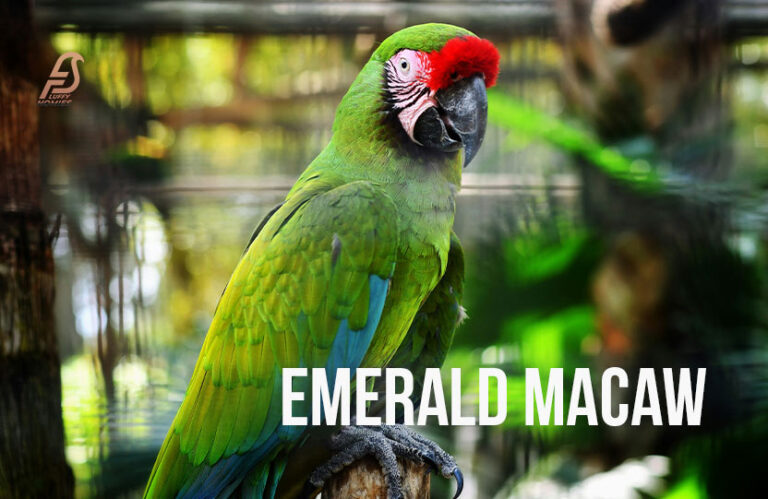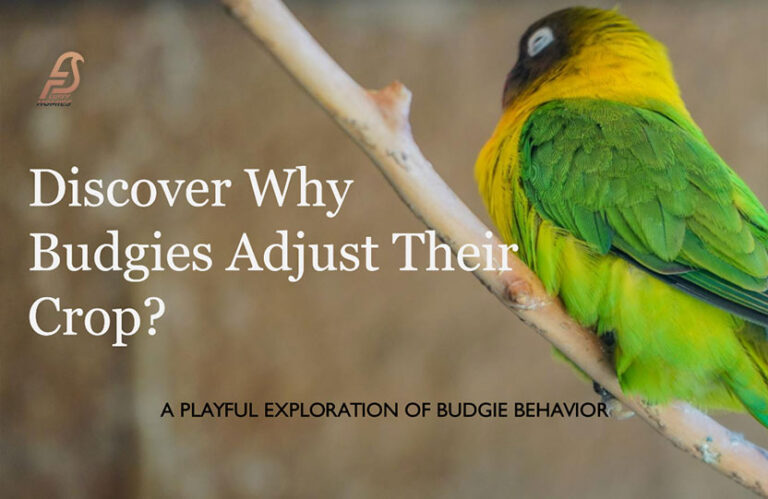Can Lovebirds Live Alone? (Lovebird Without a Partner 2024)
The lovebird is a social bird that forms close relationships with its spouse in the wild. On the other hand, whether lovebirds do better when kept alone is a topic of continuing discussion among avian aficionados.
Concerns about the bird’s health and its capacity to adjust to living alone typically center this conversation.
The idea of lovebirds having to endure life alone is something that the avian world finds intriguing and troubling because these birds are inherently social and inquisitive.
It is essential to know the social habits and emotional requirements of lovebirds before deciding to keep even one as a pet.
Lovebirds may supposedly thrive in isolation with the right amount of human contact and environmental enrichment, but other sources stress the need to give these birds the right kind of company to keep them emotionally and psychologically well.
Learning more about the complex social dynamics of these lively animals will help us understand the possible effects of isolation on captive lovebirds.
Can Lovebirds Live Alone?
Some people who are interested in birds like albino macaw may question if lovebirds need a mate to survive. Lovebirds are sociable beings by nature, and they develop deep attachments to their partners.
Although lovebirds may get by without a spouse if they get enough human attention, it’s important to think about how the bird will cope emotionally and mentally without a partner.
Lovebirds show symptoms of sorrow or loneliness when removed from their partners, despite their lively and friendly behavior toward them.
One way to assist a lovebird cope with being alone is to provide it with lots of opportunities for socializing, mental stimulation, and environmental enrichment.
A matching partner may improve the quality of life for lovebirds, but it’s important to remember that lovebirds are naturally gregarious.
Also Check: Are Albino Parakeets Rare?
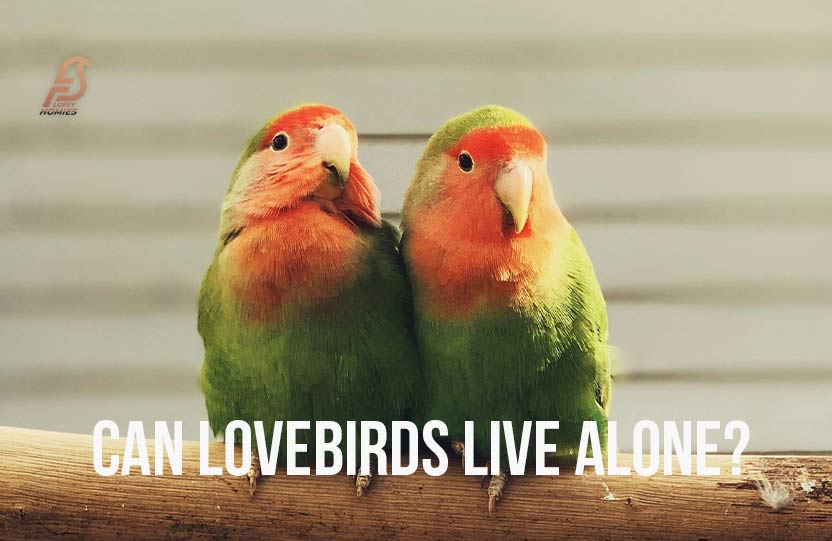
Can Lovebirds Live Alone in the Wild?
In the wild, a lovebird’s attachment to its mate may be quite strong and last a lifetime. To survive, these flocks of birds depend on each other for food, shelter, and nesting.
Since they are most comfortable in the presence of their partner, lovebirds are rarely observed flying solo in their native environment.
But in extremely unusual circumstances, a lovebird may have trouble surviving in nature if it is single. These birds’ health and navigational abilities can take a hit if they don’t have a partner to lean on for emotional support and company.
Can a Lovebird Live Without a Partner?
Lovebirds are notoriously gregarious, so the idea of living alone could be daunting to them. Birds of paradise that create deep ties with their mates are called lovebirds.
But sometimes, for a variety of reasons including separation or the loss of a spouse, a lovebird finds itself alone. Due to their social nature, lovebirds may display symptoms of anxiety and loneliness in such a situation.
Some couples may find it difficult to adjust to life on their own after being used to sharing a home with another person. Lovebirds can develop behavioral problems and social isolation when they don’t have a partner to groom, engage with, and socialize with.
A lovebird’s physical and emotional well-being depends on their caregivers giving them plenty of attention and excitement while they live alone.
Although some lovebirds may become used to living alone, it’s best to let them interact with others of their kind whenever you can.
How Long Can Lovebirds Be Left Alone?
Lovebirds are gregarious and need constant human company. When they are left alone for long periods, it might make them feel lonely and distressed. As a general rule, you shouldn’t separate a couple for longer than a day.
Lovebirds could show symptoms of stress including plucking their feathers, making too much noise, or changing their food habits if they are left alone for too long. Every day, make sure your lovebird gets enough cerebral and social stimulation to keep it healthy.
Also Check: Why Do Budgies Die Suddenly?
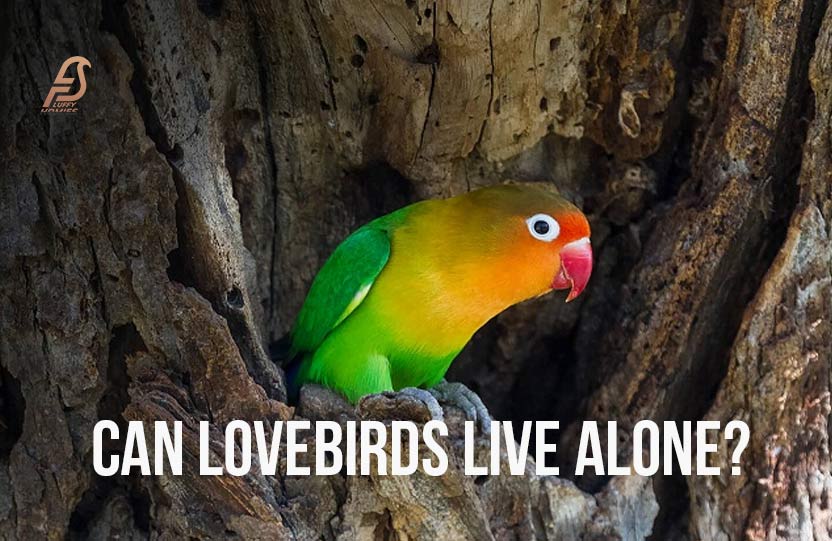
Do Lovebirds Die When Alone?
Whether it’s a flock or a spouse, lovebirds are naturally gregarious and flourish in group settings. Lovebirds’ health might take a hit when they’re left alone for lengthy periods due to stress and loneliness.
Lovebirds may show depressive symptoms such as lethargy, lack of food, and reduced vocalization when they are lonely. Being alone can cause a lot of stress for lovebirds, and that tension might cause them to get sick or die too soon.
The well-being and pleasure of lovebirds need to provide them with opportunities for social connection, mental stimulation, and an enriched environment.
When leaving their pets alone for long periods, owners of lovebirds should keep in mind that these birds have social requirements and may want to consider adopting a partner.
Can Lovebirds Live with Budgies?
Birds of prey like lovebirds and budgies are naturally gregarious and do best when left alone. Lovebirds and budgies can coexist, but there are certain things to remember.
Parakeets like anthracite budgies are often more chill and amiable than lovebirds, who are stereotyped as being more aggressive and possessive of their territory. It is important to introduce them to one another slowly and carefully so that they can live together peacefully.
To keep fights over food and playthings at bay, make sure there’s plenty of room and toys. To make sure neither species is being threatened or distressed, it is crucial to closely observe how they interact with one another.
It is possible to keep lovebirds and budgies in the same cage or aviary if the birds learn to coexist peacefully and respect one another’s personal space.
Also Check: Reasons Why My Budgie is Standing on One Leg?
Conclusion: Can a Lovebird Live Without a Partner?
Ultimately, lovebirds are gregarious beings who flourish when surrounded by others of their species. Even while they can get by on their own, it’s not good for them in the long run.
To guarantee the pleasure and cerebral stimulation of lovebirds, it is vital to provide them with a good companion or partner.
Lovebirds are social creatures, best suited to coexisting in small flocks or partnerships, based on their behavior and instincts. These fascinating birds place a high value on the company because of their intrinsically gregarious character.
Frequently Asked Questions
It is acceptable to maintain a single lovebird. Although they exhibit optimal behavior when paired, they are capable of surviving independently given that their owner provides sufficient attention and fosters a strong emotional connection with the avian. Social engagement is vital to their overall welfare.
Although lovebirds can be left alone, they do require constant attention. Although solitary lovebirds flourish in couples, it is crucial to ensure that they receive adequate care and interaction to maintain their well-being.
Lovebirds are social birds that form strong bonds, and separating bonded pairs can lead to stress or loneliness. While they can survive alone, providing companionship or social interaction, preferably with another lovebird, is essential for their mental and emotional well-being.
In the aftermath of the death of one lovebird, the surviving individual might undergo emotional distress, solitude, or alterations in behavior. Offer companionship, participate in social interactions, contemplate introducing a new spouse, or provide additional care and attention to the remaining lovebird to bolster its health.
